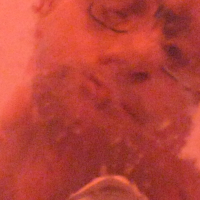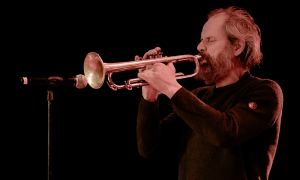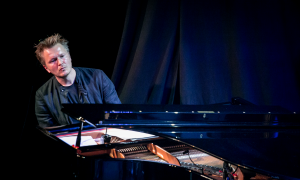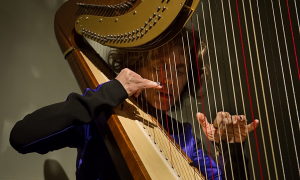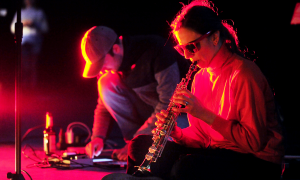Home » Jazz Articles » Festivals Talking » Moers Festival Interviews: Pat Thomas
Moers Festival Interviews: Pat Thomas
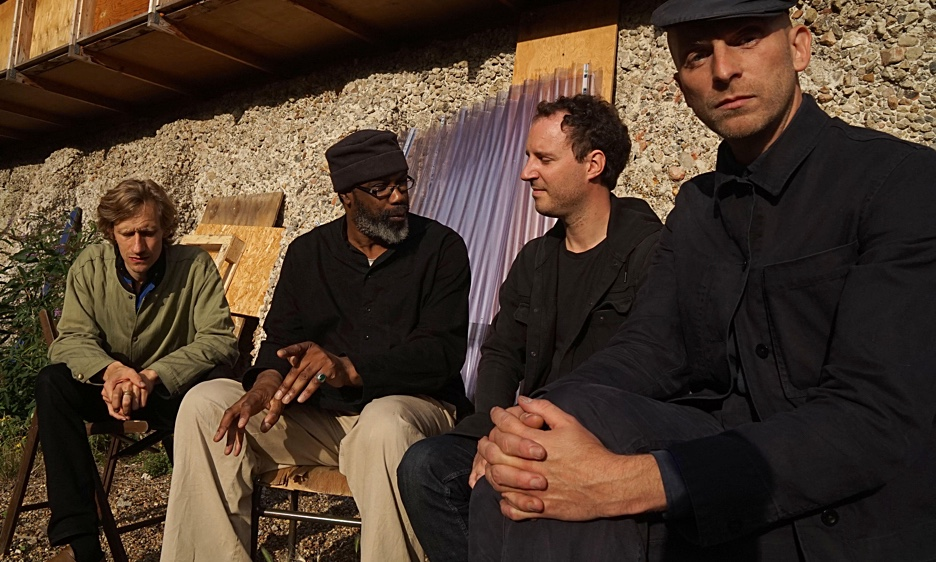
Courtesy Guy Bolongoro/Anne Tetzlaff
Few folks expected that similar restrictions would still be in place a year later. Maybe live audiences will be allowed inside by the time of May 21st, but this 50th anniversary edition of the Moers Festival will go ahead regardless, in similar fashion to last year. Another possibility that's being investigated is to have large screens outside the Halle, beaming to the festival market place, which will hopefully be encamped in the massive surrounding park.
One of the long weekend's highlights is set to be the quartet called [Ahmed], dedicated to the musical legacy of the Brooklyn-born Ahmed Abdul-Malik, who played bass for Thelonious Monk, John Coltrane, Randy Weston and Art Blakey, as well as highlighting oud on his own albums. There are a surprising number of these solo LPs available for streaming online, especially as Abdul-Malik remains relatively obscure in the jazz canon. Despite his notable employers, the bassist's playing is only documented on a handful of their releases. Abdul-Malik's own material is the real discovery here, particularly with the compositions that highlight his oud playing, intermingling with North African and Middle Eastern forms. Randy Weston's African odysseys have enjoyed a wider exposure, but Abdul-Malik's works must have sounded highly unusual at their time of release, in the late 1950s and early '60s.
Pianist and electronicist Pat Thomas still resides in Oxford, England, and has built up a significant reputation on the European improvisation scene, and beyond. In recent years, the Black Top expandable duo with vibraphonist Orphy Robinson has been a frequent provider of compelling interactions. Quieter by reputation, but certainly still full of strikingly creative musical violence (as well as magnetising repetition) is [Ahmed], also featuring alto saxophonist Seymour Wright (London), bassist Joel Grip (Berlin) and drummer Antonin Gerbal (Paris).
"It's a strange thing," muses Thomas. "Once people hear Abdul-Malik, they're always amazed by his music. It can pass people by, because he's not seen as a major figure in the music. I think that's a bit of a mistake. It's good for people to hear what he was doing. It's important. His approach to rhythm was very free. It's not straight 4/4 all the time."
When Wright expressed an interest in Abdul-Malik's output, the immediate idea was to form a duo with Thomas, but very soon, the pair started to hear an expanded rhythmic potential. Thomas had been running a trio called ISM, with Grip and Gerbal, so it seemed like a natural evolution to unite these separate entities. "It turned out that Seymour knew them as well, so we said why not all get together and see what happens. We liked the results, and did the first record on Umlaut." This is Grip's own label.
[Ahmed] have released three albums so far, in fairly swift succession. The first, New Jazz Imagination, was a studio collection, but it was the second, Super Majnoon, a live recording of their Hong Kong gig at Empty Gallery, where the band audibly latched on to the sound and the method that has risen in the last three or four years. "We don't try to copy, we have our own approach to his music," Thomas continues. "We're improvising, but we just found this way of using the compositions. I try to think of using the piano in a different way, as there's no chordal instrument on the original records. I'm thinking of the piano as a much more percussive sound, using a lot of dissonance, with repetition, trying to find a way of making that music."
We could indeed use the term ' complicated headbanging,' particularly when listening to the most recent Nights On Saturn album, which was laid down at a Café Oto gig in London, December 2019. Its sharply captured atmosphere has a feral intensity, an obsessed energy that makes it into a new kind of systems music, hammered with pulping finger-power, stacked lattices elaborating with relentless progression and a manic unleashing of primal forces. This character holds even greater power when heard within an existence where reliving such a savage public display of improvisational interlocking now awakens distant memories for the isolated 2021 listener. Piano keys become fast-tolling doom-bells. Wright's alto darting with deadly accuracy. Bass and drums in a vibrating blur. The acrid waft of spontaneous onstage risk-taking has a heightened effect in early 2021. Barely bottled, and close to shattering.
"Joel and Antonin are a really great rhythm section, they've been working together for a decade..." Thomas is not meaning rhythm section in the usually accepted fashion. This is an evolving cross-blocking of hard edges, possessing gradually shifting glacial-mass grinding. "They have these multiple levels of time, happening simultaneously. They're constantly pushing and moving when we play the more static stuff. It gives it something unusual, you're not expecting that, they're playing really heavy, I suppose that it shocks people."
[Ahmed] have also played sets at the Bad Bonn Kilbi festival, in Switzerland, and at the Alice venue in Copenhagen, steadily refining their band sound. "We developed this approach, putting our own stamp on the music. It's always a work in progress, but we've got a sound which is our sound. It's quite likely that, once you've heard it, you'll know that sounds like [Ahmed]."
With this band, Thomas deliberately restricts himself to acoustic piano throughout. "I thought it would be defeating it," he says, when considering using electronic means. "The way the music was working, we felt it was an acoustic band. That was the challenge, for myself. The piano could have been the biggest obstacle to this music happening. It would have been easier with electronics, but it didn't seem like that would work. With Black Top, I want to be integrating grooves, as well as more abstract approaches at the same time, but [Ahmed] was a challenge, all the melodies based on modes."
At the Moers Festival, the foursome will probably play "Nights On Saturn," but this is by no means definite, as other creative urges may have overtaken [Ahmed] by that time.
Besides his set with [Ahmed], Thomas, and multi-instrumentalist Joe McPhee, will be the prime soloists during the festival's Meeting Point set, playing a work by the 17-year-old composer Julius Von Lorentz, with a sextet plus string quartet. According to Thomas, it's crammed with dense notation, but then opens up to freedom improvisation. He believes that this is a growing tendency among composers, and a development to be welcomed...
Tags
Festivals Talking
Pat Thomas
Martin Longley
Germany
Dusseldorf
Ahmed Abdul-Malik
Thelonious Monk
John Coltrane
Randy Weston
Art Blakey
Orphy Robinson
Seymour Wright
Joel Grip
Antonin Gerbal
PREVIOUS / NEXT
Pat Thomas Concerts
Support All About Jazz
 All About Jazz has been a pillar of jazz since 1995, championing it as an art form and, more importantly, supporting the musicians who make it. Our enduring commitment has made "AAJ" one of the most culturally important websites of its kind, read by hundreds of thousands of fans, musicians and industry figures every month.
All About Jazz has been a pillar of jazz since 1995, championing it as an art form and, more importantly, supporting the musicians who make it. Our enduring commitment has made "AAJ" one of the most culturally important websites of its kind, read by hundreds of thousands of fans, musicians and industry figures every month.

